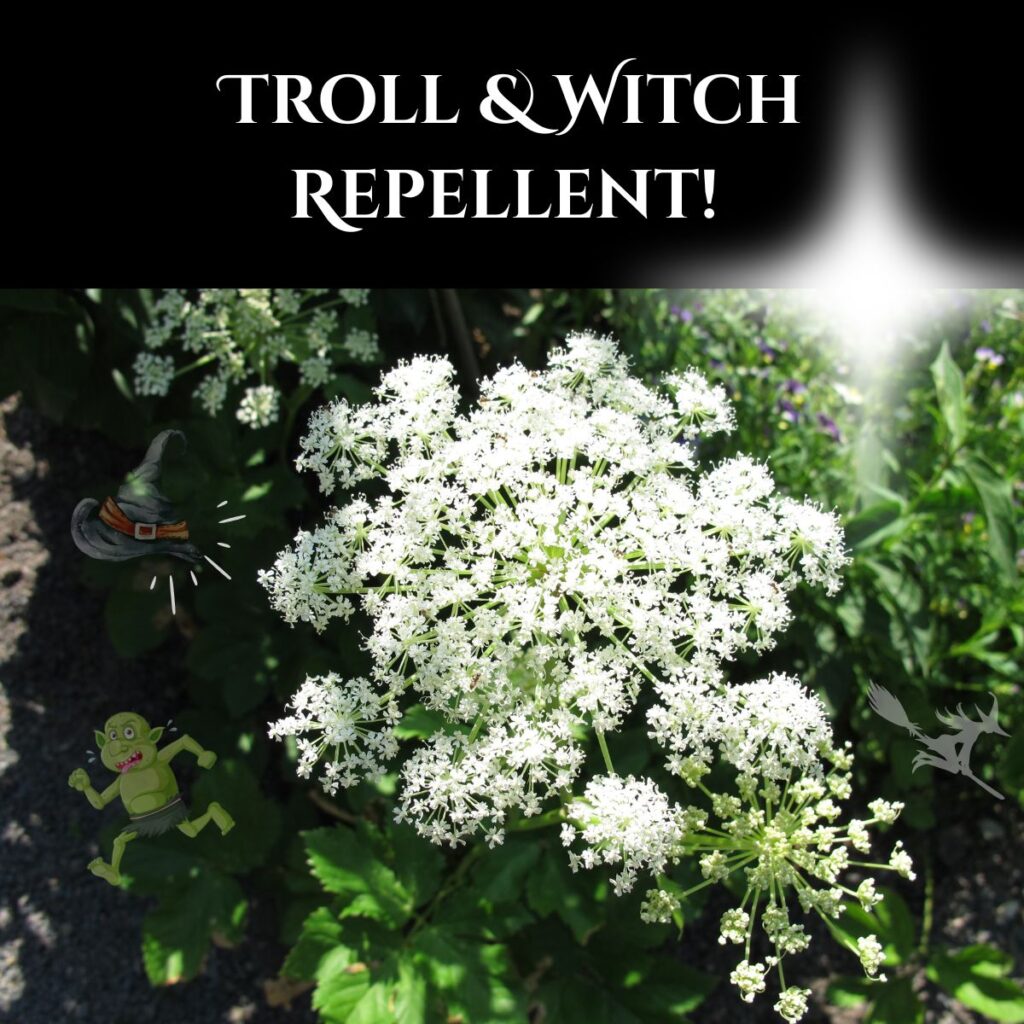Masterwort (aka. Koch; Peucedanum ostruthium, syn. Imperatoria ostruthium) is an old herbal bitter used in flavoring liqueurs and bitter beverages, and also an old traditional Austrian medicine that has internal and external uses.
Its leaves have also been consumed cooked as a potherb or a flavoring in dishes, imparting a hot peppery flavor. The leaves have a much milder flavor than its roots, but both have been used in cuisine.
This carrot family species is native to Europe, but has been grown in many areas outside of this and has naturalized in some areas in woodlands and damp mountain meadows.
Although the roots and leaves have bitter substances useful in traditional medicine, its essential oil also has uses and has a camphor-like composition. Masterwort is considered GRAS in the US as a flavor.
In herbal medicine, Masterwort is not popularly used today, but has a long history in traditional Austrian medicine as a digestive, aiding in flatulence and stomach aches, and acting as an overall digestive tonic.
Its common name derives from the German “Meisterwurz”, with the belief that the plant came from God and was useful for keeping the devil, trolls, and witches away.
It was considered a very healing herb that could be used to drive down fevers, protect the liver, used for pain relief (of both migraine and toothaches), for respiratory conditions, having an expectorant activity, and stimulating blood flow. It was also used for skin disorders, infections, and musculoskeletal pain. Particularly notable are its historical applications for rheumatism, chronic inflammatory diseases, wound healing, and as a digestive aid.
Ethnoveterinary records also cite Masterwort for treating livestock ailments and superficial injuries.
Through scientific investigation, Masterwort has been found to exhibit anti-inflammatory, antipyretic, antimycobacterial, antioxidant, digestive, expectorant, insecticidal, immunomodulatory, antiproliferative, and wound healing activities.
A homeopathic preparation is made with Masterwort with the main indication of use in skin disorders and reducing the secretion of mucus in the airways and intestines.
One study confirmed that leaf and rhizome extracts possess strong anti-inflammatory and wound-healing effects, with leaf extracts showing greater cyclooxygenase/lipoxygenase inhibition than rhizome fractions, significantly accelerating wound closure and demonstrating high antioxidant activity in vitro.
Although Masterwort is lacking in clinical substantiation, perhaps this is an herb we should be paying more attention.
*This content is for informational and educational purposes only. It is not intended to provide medical advice or to take the place of such advice or treatment from a personal physician.
Troll & Witch Repellent!

